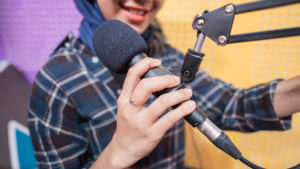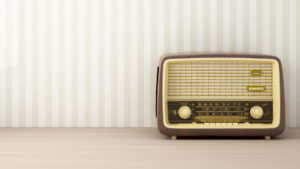Table of Contents
USB microphones have become increasingly popular for podcasting due to their ease of use and affordability. While there are many advantages to using a USB microphone for podcasting, there are also some disadvantages to consider. Let’s take a closer look at the advantages and disadvantages of using a USB microphone for podcasting.
USB microphones have become increasingly popular among podcasters due to their numerous advantages over traditional XLR microphones. We will explore the key advantages of using a USB microphone for podcasting.
Advantages of Using a USB Microphone for Podcasting
Ease of Use
Perhaps the most significant advantage of using a USB microphone for podcasting is its ease of use. Unlike XLR microphones, which require additional equipment like a mixer or audio interface, USB microphones are plug-and-play. This means you can simply plug them into your computer and start recording. This makes USB microphones ideal for beginners or podcasters who don’t want to deal with the complexity of additional equipment.
Affordability
Another significant advantage of USB microphones is their affordability. XLR microphones require additional equipment, such as an audio interface, which can add significant cost. In contrast, USB microphones are all-in-one devices, which means you don’t need any additional equipment to get started. This makes USB microphones an excellent choice for podcasters who are just starting out or who have a limited budget.
Portability
USB microphones are also more portable than XLR microphones. They are typically smaller and lighter, which makes them easy to transport and use in a variety of settings. This makes USB microphones an excellent choice for podcasters who want to record on-the-go or who need to move their recording setup frequently.
Compatibility
USB microphones are compatible with a wide range of devices, including computers, laptops, and mobile devices. This means you can use your USB microphone with a variety of recording software, making it incredibly versatile. Additionally, many USB microphones come with their own software, which can make it easy to get started with recording and editing your podcast.
Sound Quality
While XLR microphones are generally considered to provide better sound quality, USB microphones have come a long way in recent years. Many USB microphones now offer high-quality sound that is more than sufficient for podcasting. Additionally, many USB microphones feature built-in preamps, which can help to boost the microphone’s signal and improve sound quality.
USB microphones offer a range of advantages for podcasters, including ease of use, affordability, portability, compatibility, and sound quality. While XLR microphones may provide slightly better sound quality, USB microphones have come a long way in recent years and offer a range of advantages that make them an excellent choice for podcasters. If you’re just starting out or looking for an affordable and easy-to-use microphone for your podcast, a USB microphone may be the perfect choice for you.
While USB microphones offer many advantages for podcasters, they also have some disadvantages that should be considered before making a purchase. We will take a look at some of the key disadvantages of using a USB microphone for podcasting.
Disadvantages of Using a USB Microphone for Podcasting
Limited Flexibility
One of the biggest disadvantages of USB microphones is their limited flexibility. Unlike XLR microphones, which can be used with a wide range of mixers and audio interfaces, USB microphones are designed to be used only with a computer or mobile device. This limits their flexibility and makes it difficult to expand your recording setup in the future.
Limited Sound Quality
While USB microphones have come a long way in recent years, they still generally offer lower sound quality than XLR microphones. This is due in part to the fact that USB microphones typically use built-in preamps, which can limit their ability to capture the full range of frequencies and dynamics in your voice. Additionally, USB microphones may be more susceptible to interference and noise than XLR microphones.
Limited Customization
Another disadvantage of USB microphones is their limited customization options. While XLR microphones can be customized with different cables, preamps, and other accessories, USB microphones are designed to be used as-is. This means you may not be able to customize your setup to suit your specific needs, which can be frustrating for experienced podcasters.
Dependence on Computer
USB microphones are designed to be used with a computer or mobile device, which means you must have a reliable and functional computer or device to use them. If your computer crashes or experiences technical difficulties, you may not be able to use your USB microphone until the issue is resolved. Additionally, USB microphones may be affected by other software or hardware issues on your computer, which can make them less reliable than XLR microphones.
Limited Upgrade Path
Finally, USB microphones have a limited upgrade path. While you can upgrade your recording setup with XLR microphones, preamps, and other accessories, USB microphones are designed to be used as-is. This means that if you outgrow your USB microphone or want to upgrade to a higher-quality microphone, you may need to purchase an entirely new setup.
While USB microphones offer many advantages for podcasters, they also have some significant disadvantages to consider. These include limited flexibility, lower sound quality, limited customization options, dependence on a computer, and a limited upgrade path. If you’re just starting out or have a limited budget, a USB microphone may be the perfect choice for your podcast. However, if you’re an experienced podcaster or require higher sound quality and customization options, you may want to consider an XLR microphone setup instead.
In conclusion, USB microphones offer a range of advantages for podcasters, including ease of use, affordability, portability, and compatibility. However, they also have some disadvantages, such as limited sound quality, limited control, limited upgradability, and interference. When choosing a microphone for your podcasting needs, it’s important to consider both the advantages and disadvantages of each option to determine which one is right for you.
For more on microphones, check out THE ADVANTAGES AND DISADVANTAGES TO XLR MICROPHONES FOR PODCASTING where we explore the XLR microphone.






